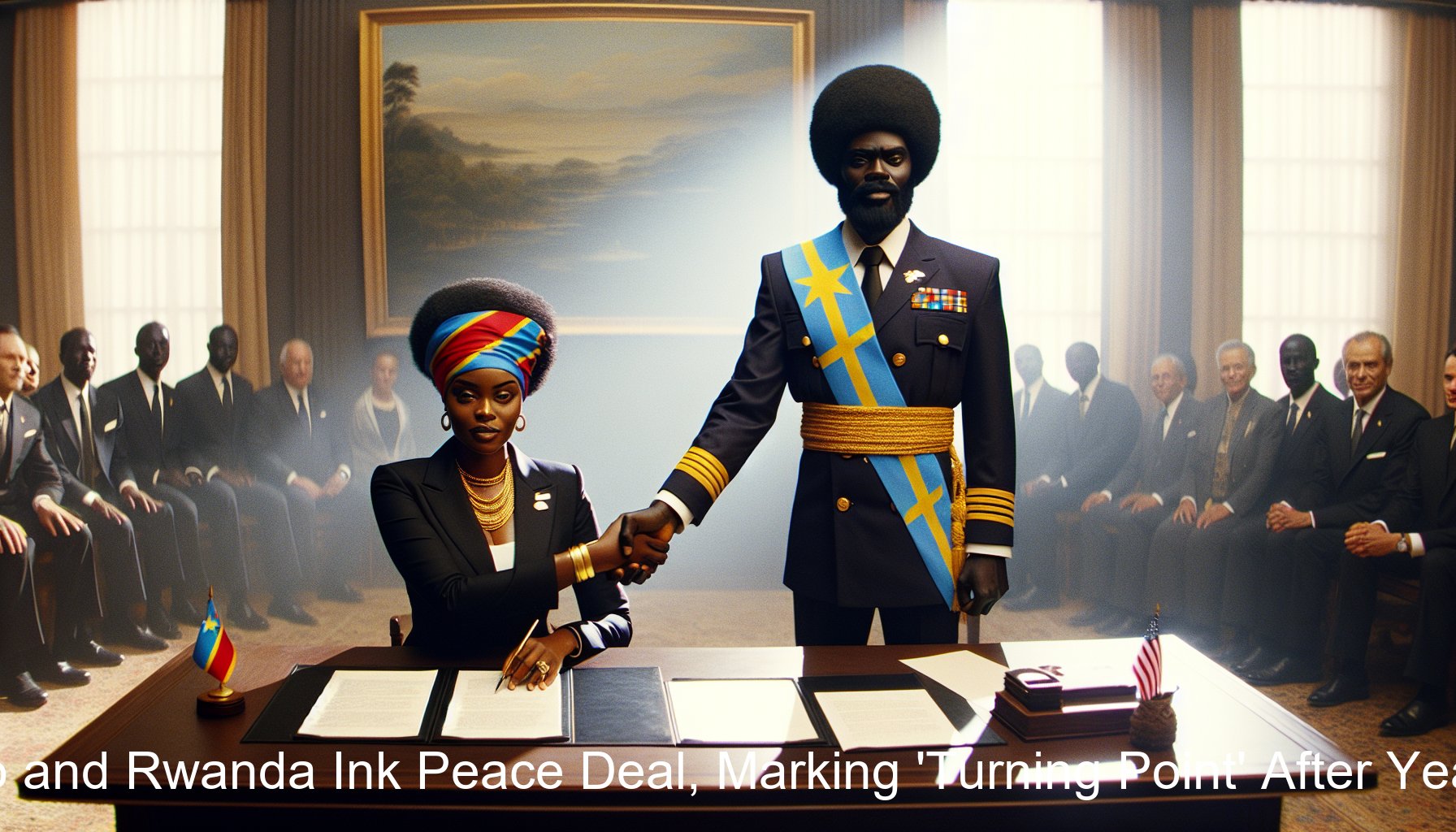Title: DR Congo and Rwanda: An Era of Renewed Hope and Reconciliation
The recent signing of a peace agreement between the Democratic Republic of Congo (DR Congo) and Rwanda marks a significant turning point in the region’s history, following decades of brutal conflict. This development promises not only the cessation of hostilities but also a new era of cooperation and mutual growth.
The deal, brokered after painstaking diplomatic efforts, has been hailed as a beacon of hope for the war-torn region. Both the DR Congo and Rwanda have a troubled past, marred by bloody conflicts, ethnic tensions, and political instability. The years of war have left deep scars on both nations, claiming countless lives, displacing millions, and stunting economic growth.
The signing of this peace agreement signifies a much-needed end to this violent chapter in their shared history. However, it also serves as a stark reminder of the long, arduous journey towards lasting peace and reconciliation that lies ahead.
Historically, tensions between the two nations can be traced back to the 1994 Rwanda genocide, where ethnic Hutus massacred approximately 800,000 Tutsis and moderate Hutus. Following the genocide, Hutu militias, accused of participating in the atrocities, fled into DR Congo, then known as Zaire. This set the stage for the First and Second Congo War, which sucked in neighboring countries, causing widespread destruction and loss of life.
The peace deal aims to address these historical grievances and set a new path for the two nations. It outlines key areas of cooperation such as border security, refugee repatriation, and joint economic projects. By committing to address these issues, both nations are taking crucial steps towards healing and reconciliation.
Securing the border is a critical aspect of the deal. Over the years, porous borders have facilitated the movement of armed groups, contributing to instability in both countries. By enhancing border security, DR Congo and Rwanda can significantly mitigate the threats posed by these armed groups, fostering peace and stability in the region.
The agreement also addresses the sensitive issue of refugee repatriation. Thousands of Rwandans fled to DR Congo during the 1994 genocide and subsequent conflicts. The deal ensures their safe and voluntary return, a significant step towards addressing the lingering consequences of the war.
Joint economic projects are another critical component of the peace deal. Rwanda and DR Congo, despite their troubled past, have immense potential for economic growth. The agreement seeks to unleash this potential through collaborative ventures in sectors such as mining, agriculture, and infrastructure development.
While the peace deal is a monumental step forward, challenges remain. Both nations must ensure the effective implementation of the agreement, addressing any emerging issues promptly to prevent a resurgence of conflict. The international community also has a crucial role to play in supporting these peace-building efforts, providing aid, and holding both nations accountable to their commitments.
In conclusion, the signing of the peace agreement between DR Congo and Rwanda marks a significant turning point after years of war. This development offers a renewed sense of hope for a peaceful future, setting the stage for reconciliation, cooperation, and shared growth. However, the journey towards lasting peace will require continuous effort, mutual trust, and unwavering commitment from both nations.
